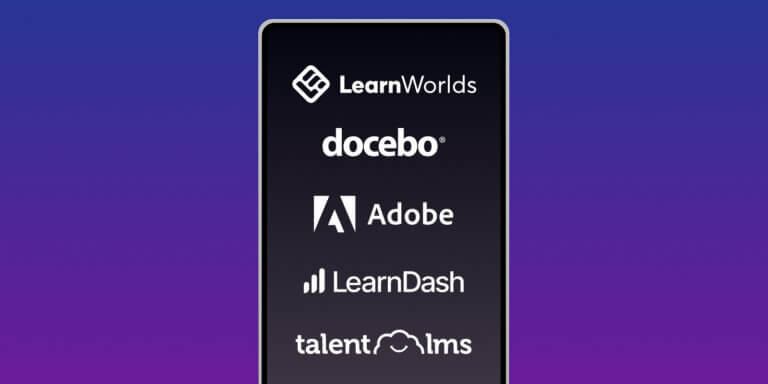Table of Contents
What’s the most unique challenge you can think of? Is it:
One of the uniquely enduring challenges is delivering ongoing, high-quality training for a large, geographically dispersed, and often high-turnover workforce. In fact, turnover in retail during peak periods can reach 95%, with an average voluntary turnover of 33% [1] in 2023 alone.
We’ll show you how you can find a solution to these challenges with a retail training LMS.
Take a look at the above quick comparison of the best retail LMS online learning options before we jump into the details.
What is a retail LMS?
A retail learning management system (LMS) is a platform built to deliver online courses to individual learners, including tools for course creation, payment processing, user management, and other features.
Retail LMS software is designed to help you create, manage, and follow up on staff training and development against the background of the retail industry.
Acting as a central learning hub, any employee can learn at their own pace. Retail learning management systems also let shop assistants get thorough product knowledge, customer service skills, or updates on health and safety regulations.
💡Read more: How to empower your sales team with an LMS for sales training
The learning challenges in retail per role
The retail space comes with a range of learning obstacles that can vary by role, but there are some barriers across the board: high employee turnover, little time for training, a broad spectrum of learning needs, and modern training that’s flexible.
Let’s see how you can overcome the specifics.
For retail managers
Retail managers find it hard to balance training duties alongside running a business, including scheduling, ordering, and customer service. They don’t always have the time and resources to offer consistent, on-the-ground training.
Studies show that 43% of retail managers employed for less than a year have never participated in any management training, while managers in companies with fewer than 100 employees received 12 minutes of manager training every six months.
This leaves them with gaps in expertise and service from location to location.
So what do they need?
They want uniform, standardized training programs that will deliver the same information to everyone on the staff without putting pressure on management. Microlearning and on-demand support, for instance, allow managers to deliver targeted training and achieve better learning outcomes.
For sales associates
Experienced sales associates’ learning challenges start with the fact that they’re dealing with too much information from day one.
When this information isn’t reinforced, they’ll simply forget it. Associates also have very fast-paced jobs. Even if they want to learn, they can have difficulty getting time away from the floor for training.
In this case, digestible modules that they can access from anywhere can ease access and knowledge recall.
For warehouse associates
Workers in warehouses need training on managing inventory, using equipment, and adhering to safety procedures, all combined with physically demanding work.
For them, hands-on, on-the-job training should be the new normal. Pair this with having them attend seminars or take quick courses to keep them updated with fast-changing technologies and processes.
Benefits of an LMS for retail training
An LMS makes it easier for retailers to tackle high staff turnover for employee retention, quick changes to product lines, and compliance in various areas by providing consistent, on-demand training resources.
Equipped with the latest in mobile accessibility, gamification, and analytics, retail LMS platforms help with the following.
Faster onboarding for new employees
A retail LMS speeds up onboarding by automating much of the product knowledge delivery work. New hires can get up to speed faster by automating repetitive processes and getting access to organized information that lets new employees move at their own pace.
This way, all employees get the same level of quality training in company policies, product knowledge, and customer service standards.
Scalable training for product and sales updates
Retailers commonly have to push new product information and sales training rapidly through a vast network of stores. An LMS for retail training provides scalable and consistent delivery, where everyone is taught in sync and at the same time.
Unfortunately, only 14% of retail workers receive their training on mobile devices, despite 74% stating that mobile learning would help them fit more training time into their busy schedules. Mobile-compatible platforms and bite-sized courses give employees access to learning updates on the go with minimal disruption to what’s business as usual.
Real-time tracking and compliance management
Today’s top learning management systems provide real-time visibility into employees’ progress, assessments, and compliance status. Managers use these to quickly see who has completed training and where skill gaps exist.
Automatic alerts and reports ensure compliance and let you spot problems before they even become problems.
Use cases of an LMS for retail businesses
For retailers, a learning management system supports a variety of use cases around a sector that’s known for its high turnover. So, how can you use it from day one?
Product knowledge training across stores
A retail LMS ensures that staff at all stores get uniform and current product knowledge training. This matters for big chains with lots of product launches or updates.
Interactive modules, videos, and quizzes help employees remember the training longer. Also, when workers go through training via their phones, learning can happen on the sales floor or in between shifts. Well-trained employees can also customize recommendations based on customer needs, which can increase trust and sales.
💡Read more: Product knowledge training 101: How to deploy an effective program
Seasonal staff onboarding at scale
Many retailers work with significant numbers of seasonal staff during busy times and require quick and easy ways of getting new employees up to speed.
With the best retail LMS, you can take hundreds or thousands of new hires through the same training modules. Digital user onboarding lets you get these seasonal employees the paperwork and trainers or mentors they need to be productive as soon as they step on the floor.
Customer service and soft skills development
Customer service is another big differentiator in retail.
Employees can use an LMS for retail to practice applying new knowledge in real-world scenarios via scenario-based modules, simulations, and gamification.
The 13 best retail LMS for online learning
And I’ve got just the right retail LMS solutions to help you with these use cases.
1. LearnWorlds
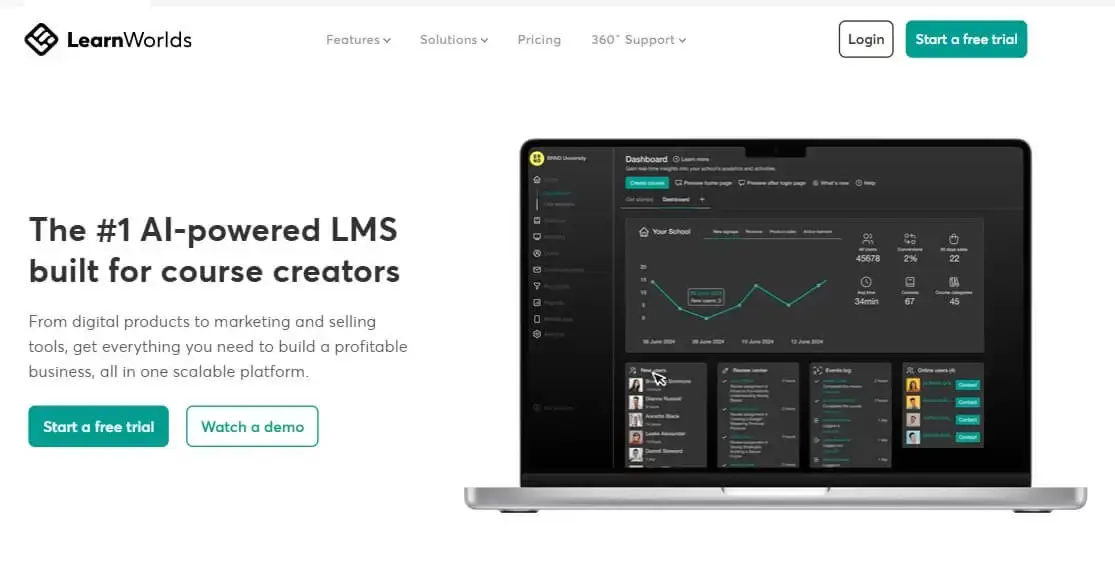
LearnWorlds allows you to easily work with a cloud-based LMS that standardizes employee onboarding, product training, and compliance management across global store operations.
With an easy-to-use interface, interactive learning content tools, and quick integrations with plenty of tools you might already be using, you can create engaging, branded learning experiences that improve staff knowledge levels and shopper satisfaction. All this while supporting your staff with rapid updates and continuous professional development opportunities.
Amongst the most notable LearnWorlds features you will find a no-code Website Builder, a mobile App Builder to build a fully branded mobile app, an Assessment Builder, and a powerful AI Assistant, which makes it one of the best retail LMSs for online learning.
2. TalentLMS
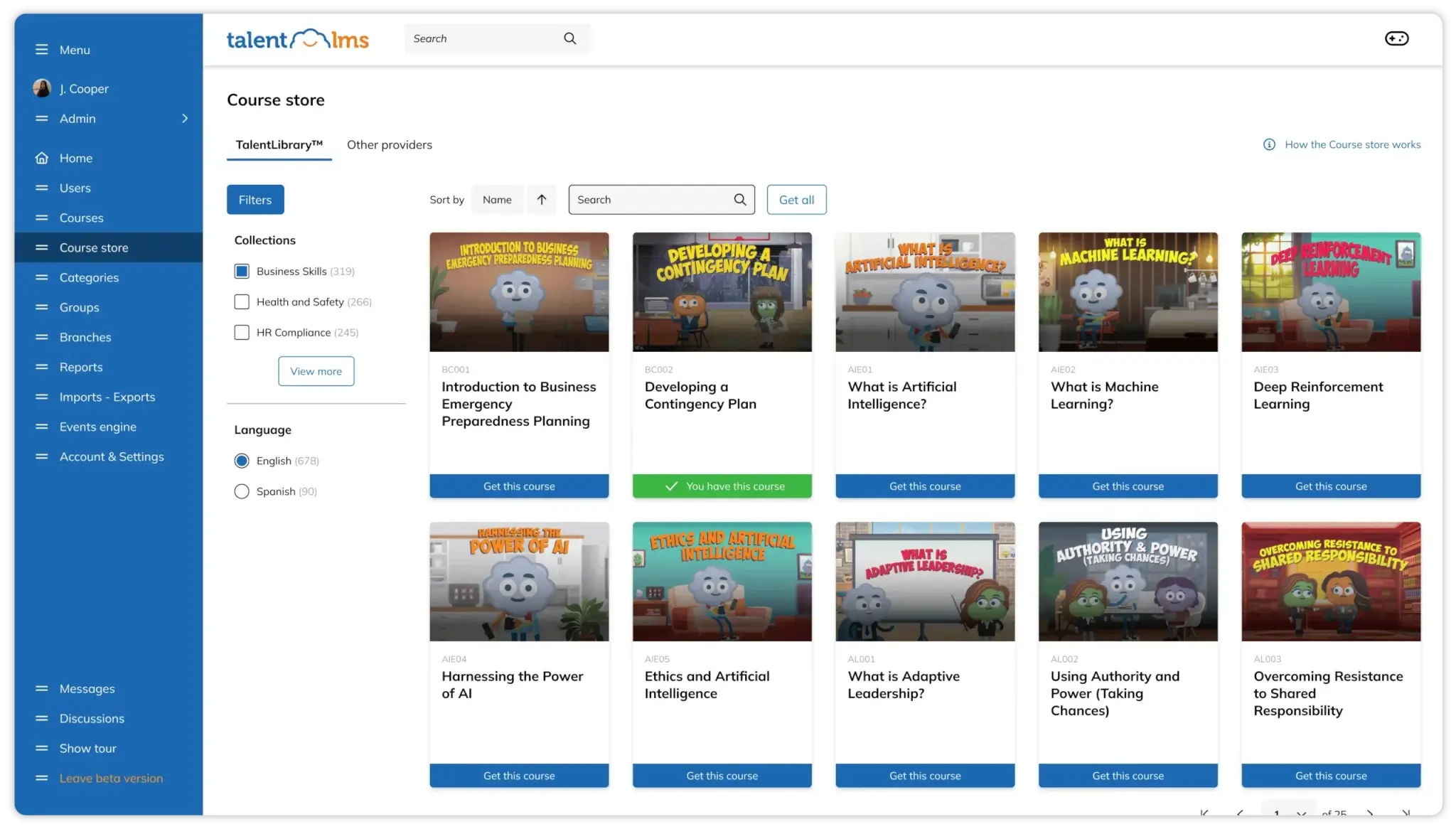
TalentLMS lets you create, update, and deliver on-the-go training to onboard staff in a snap. The platform also supports you in keeping up with employees’ progress so you can tweak future learning opportunities according to new store policies and practices.
3. Litmos
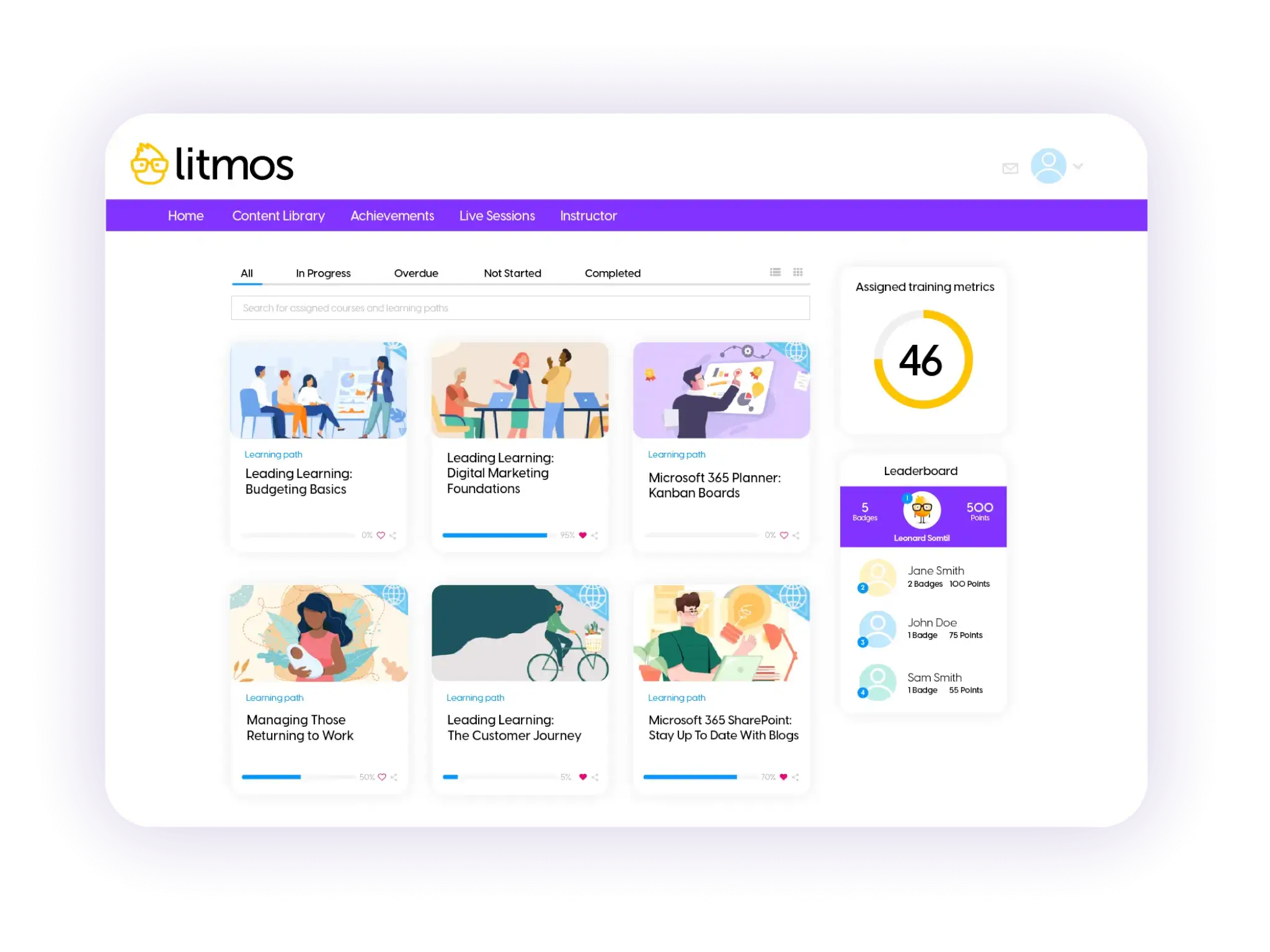
For retail companies, Litmos lets you deliver compliance, onboarding, skills training, and continuous learning. Its analytics, multilingual support, and integration flexibility work best for retailers that want to assign courses, monitor completion, and keep staff up-to-date on procedures and product knowledge.
4. Docebo
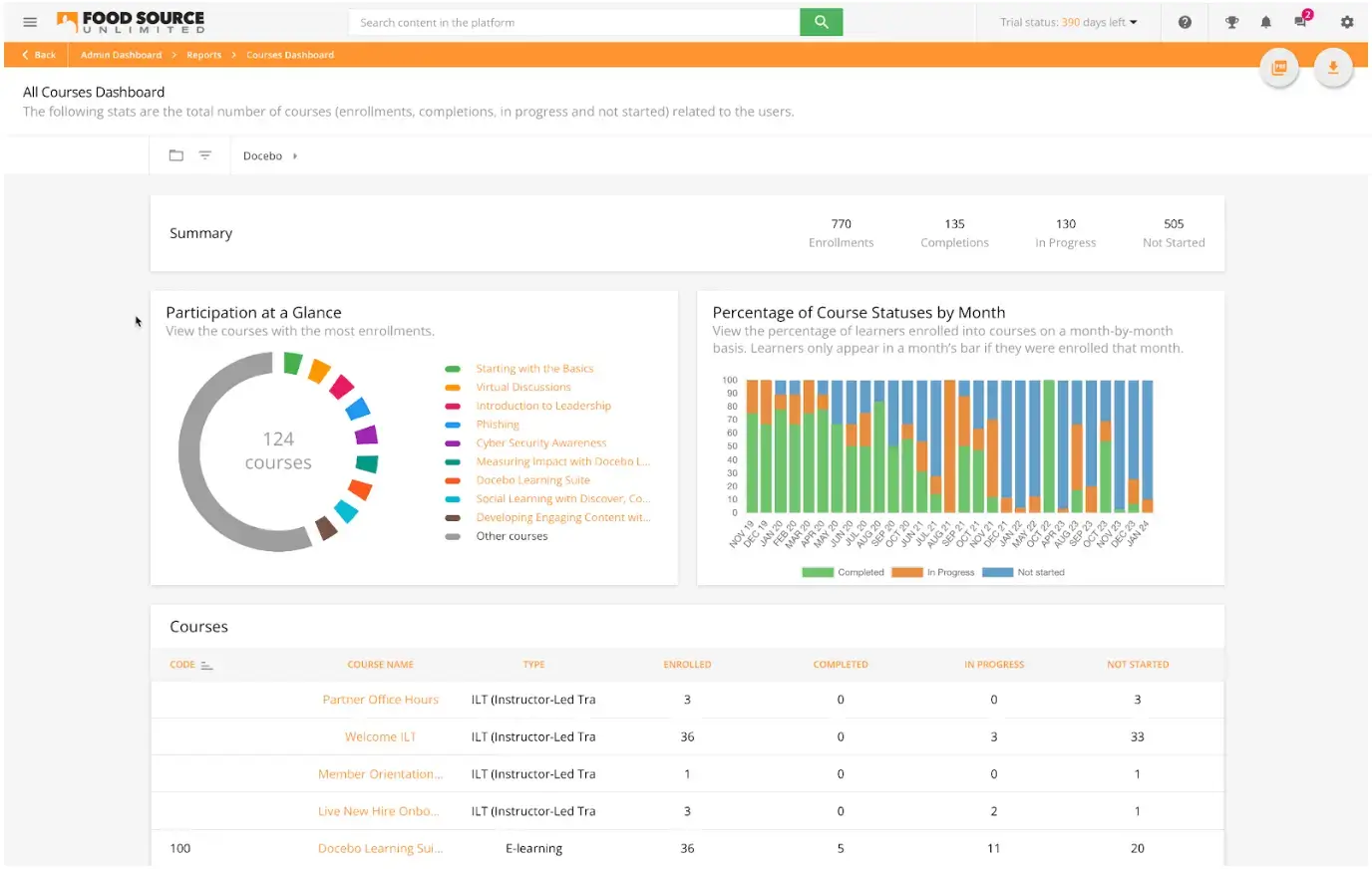
Docebo uses personalization enhanced by AI to provide just-in-time learning paths for frontline retail employees to get the training they need based on job role and skill level. It’s a good choice for big retailers looking to transform their current training and support a broader workforce.
💡See how Docebo compares to LearnWorlds: LearnWorlds vs Docebo
5. Absorb LMS
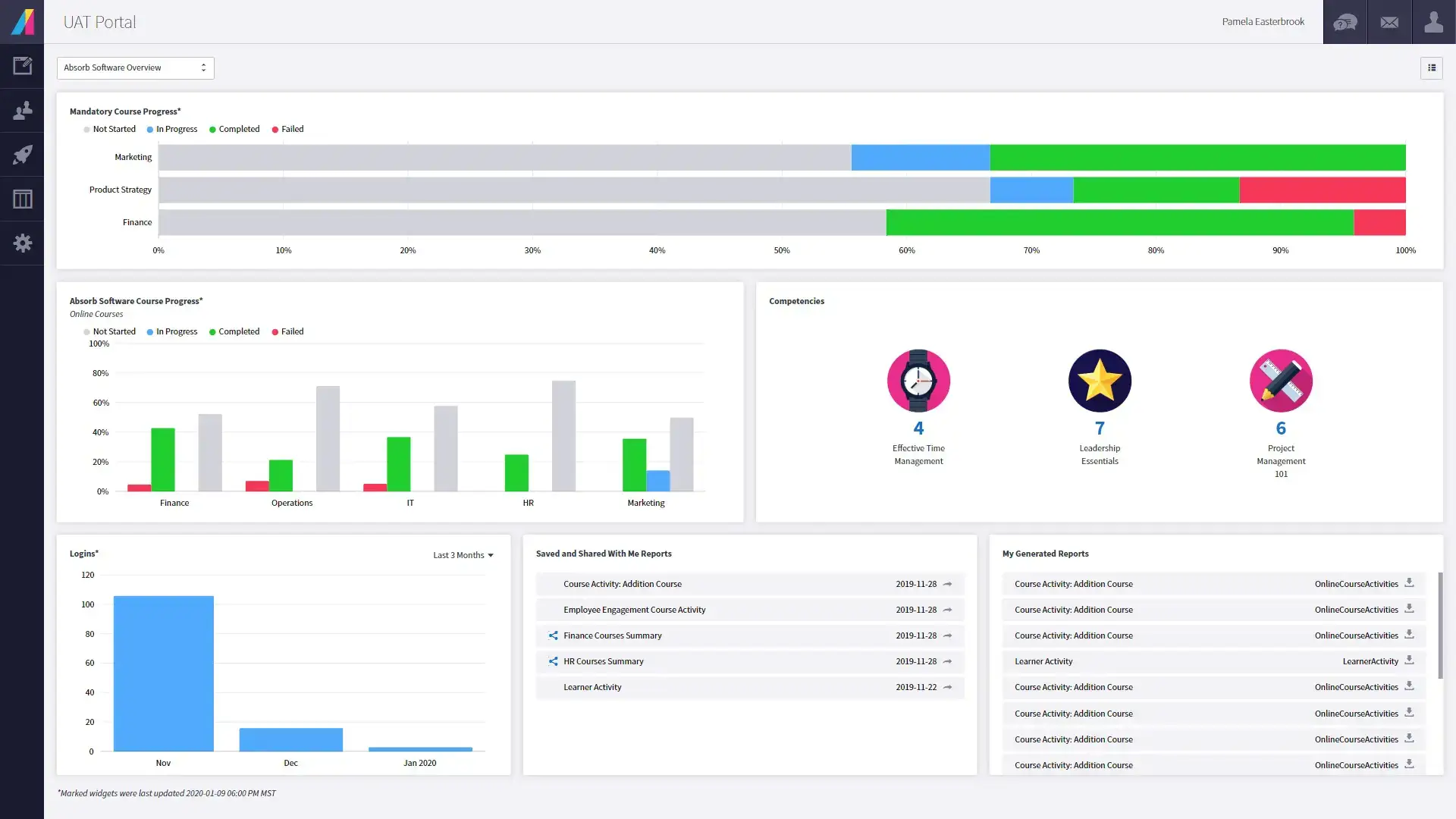
Absorb LMS provides retail-focused training solutions with observation checklists, mobile learning, and social collaboration tools. You can use it to quickly hire and onboard new employees, maintain standard procedures, and offer ongoing product and customer service training.
💡See how Absorb LMS compares to LearnWorlds: LearnWorlds vs AbsorbLMS
6. iSpring Learn
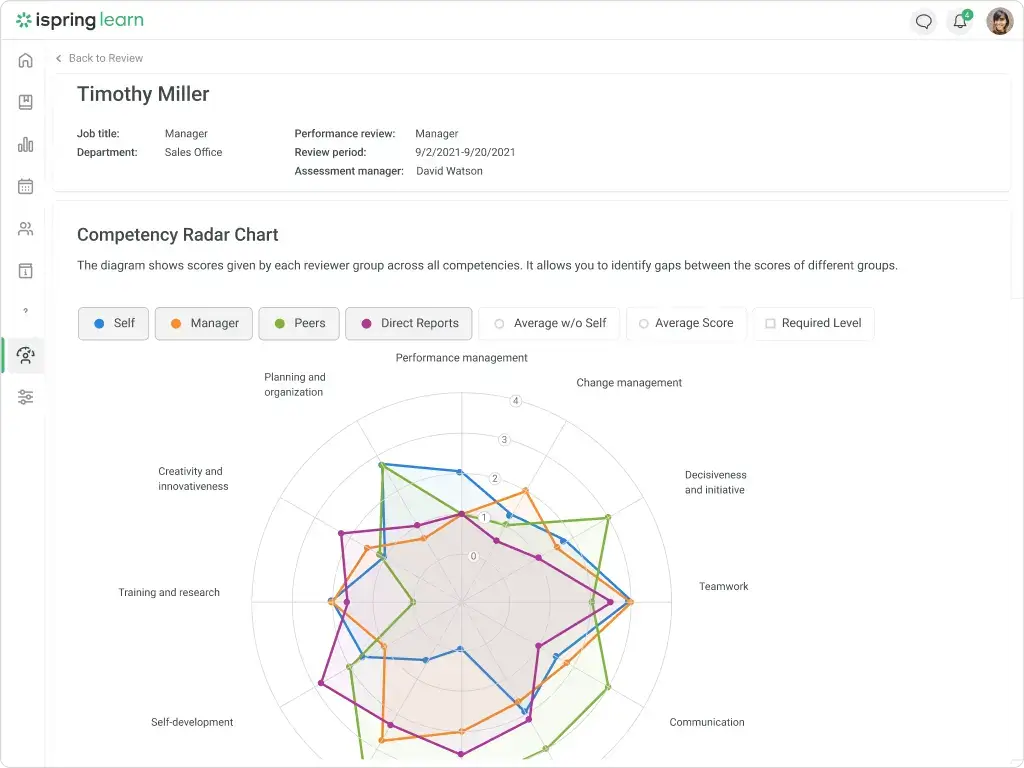
iSpring Learn automates retail training, onboarding, and assessment. This retail LMS is a good choice if you want to upskill your team or offer better customer service, thanks to the quick access your team can get to best practices and product information.
7. 360Learning
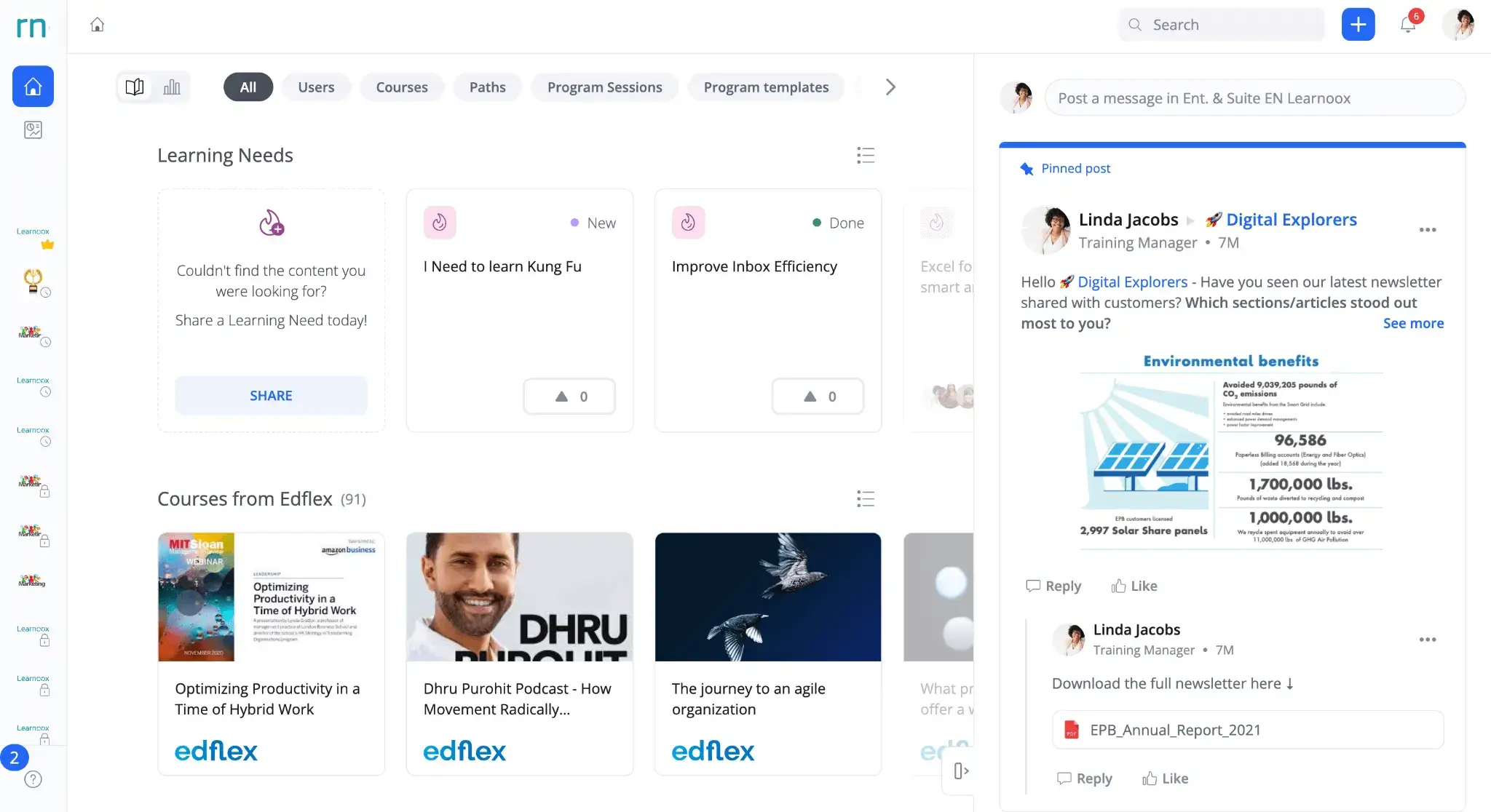
360Learning is great for collaborative retail learning, where peers help each other ramp up. Retailers can use social learning to make the most of expertise from across the business and keep learning updated in real-time.
8. Axonify
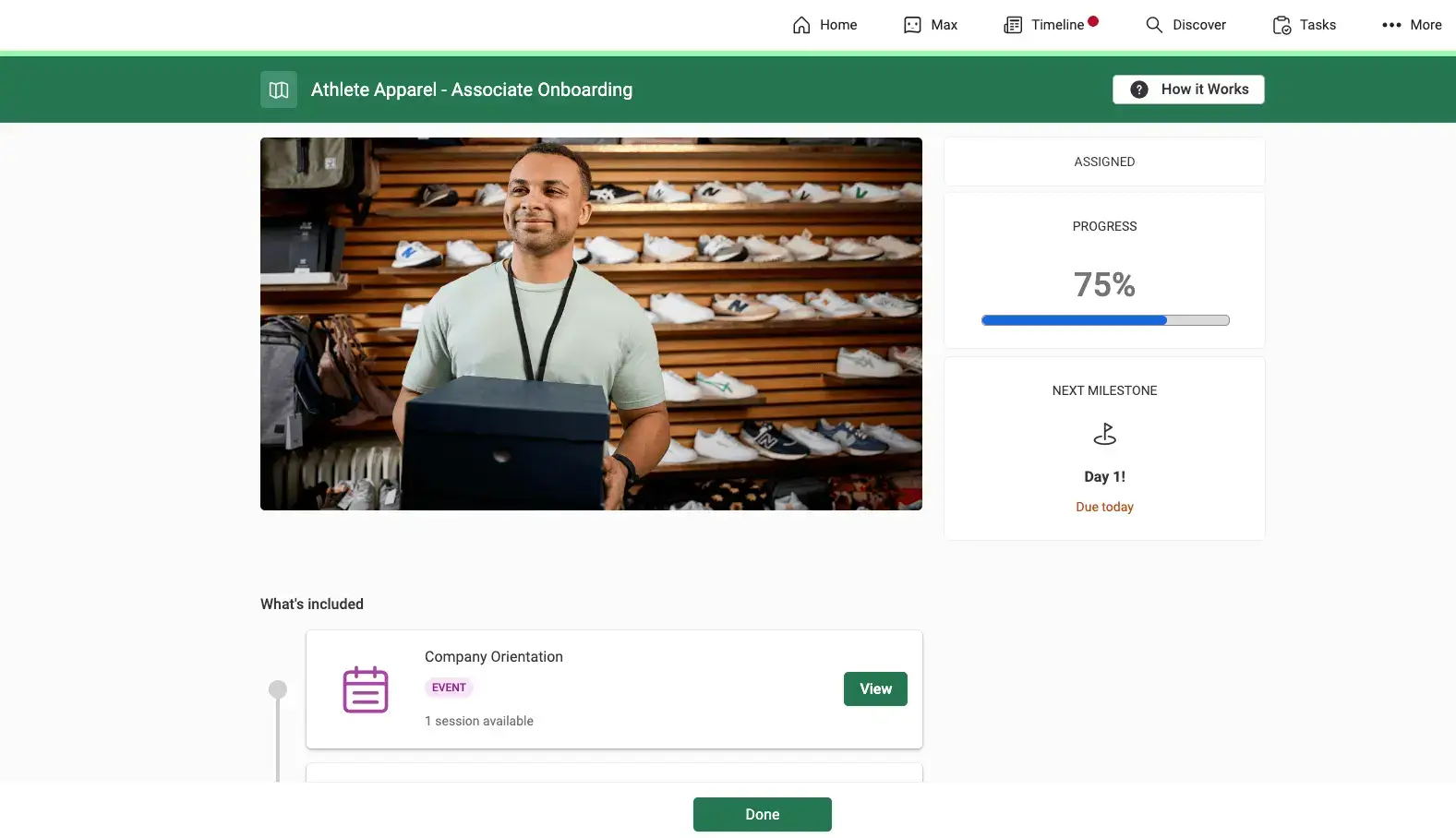
Axonify’s microlearning and gamified training work best for frontline retail staff who require immediate, effective lessons during their shifts. With AI-powered reinforcement to make sure learning sticks and personalized learning paths, retailers can increase employee engagement and retention.
9. Cornerstone OnDemand
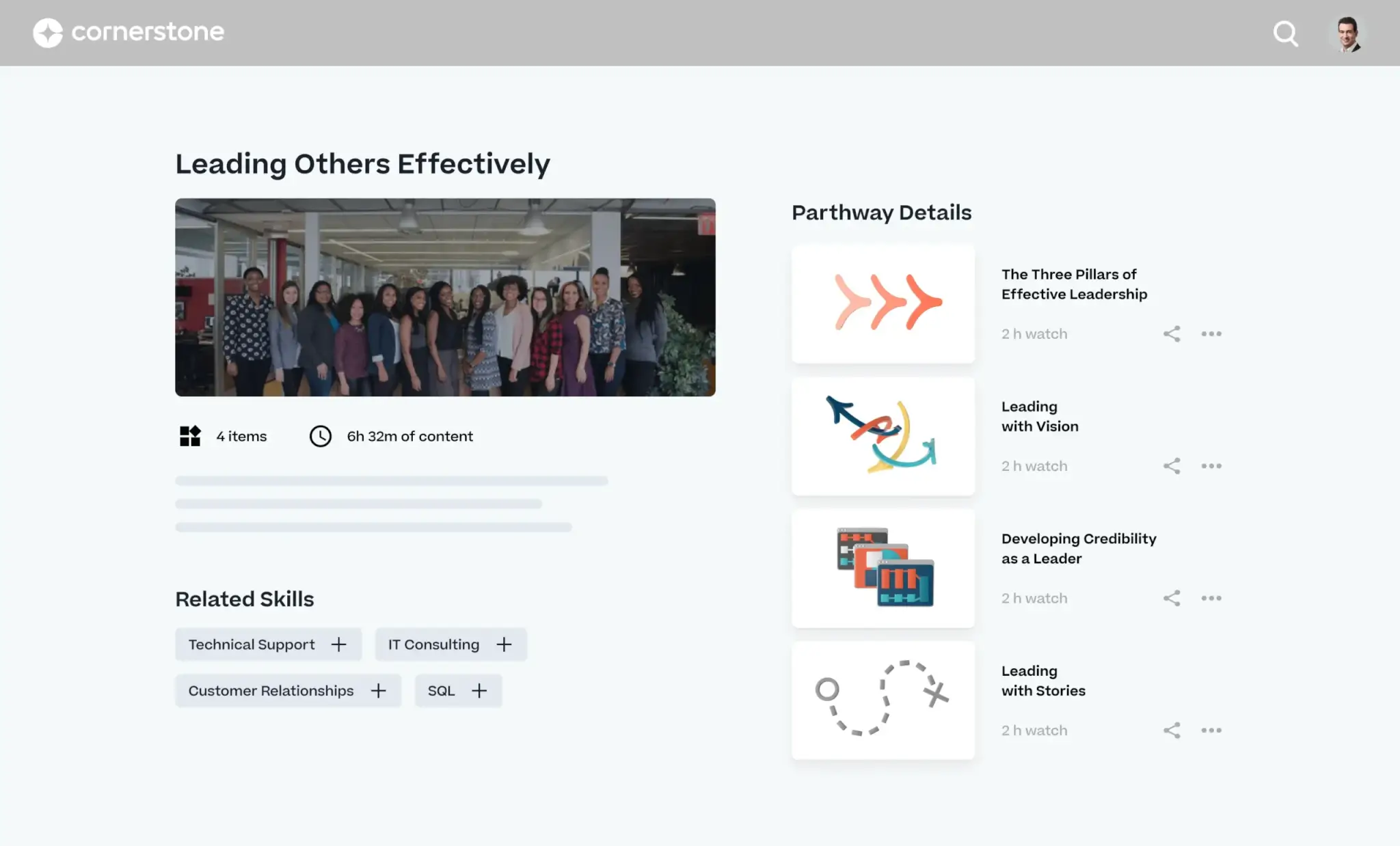
Cornerstone OnDemand combines talent management with retail training that supports employee development, compliance, and performance tracking. Learning and development for career-pathing lets you determine skill gaps, providing targeted training for top performers and future leaders.
10. Bridge LMS
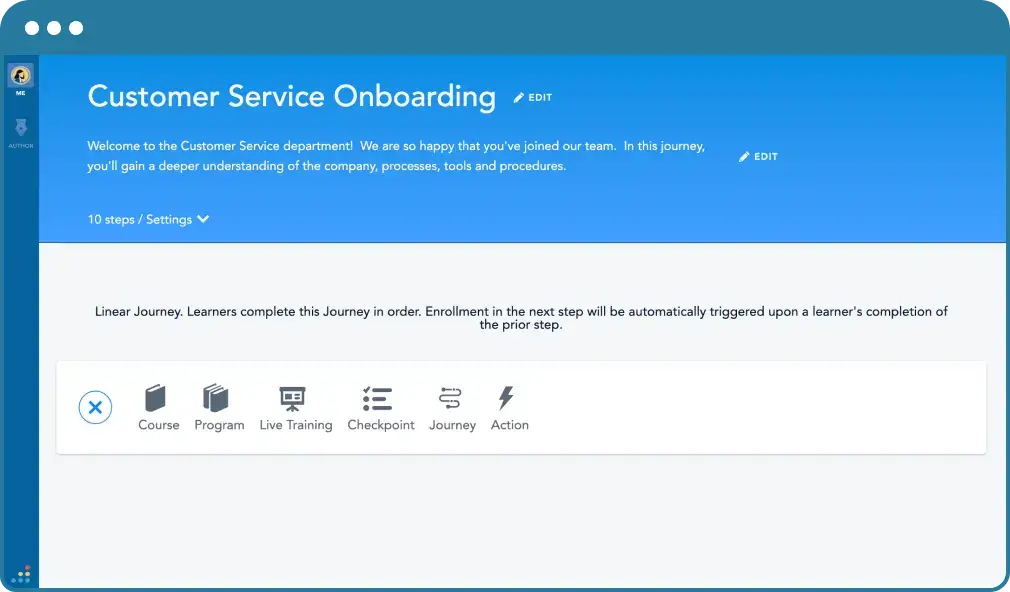
Bridge LMS focuses on employee engagement and development, with performance management tools (in addition to retail training). Managers can create customized learning paths, share feedback, and monitor progress as part of a large work culture focused on training.
11. SkyPrep
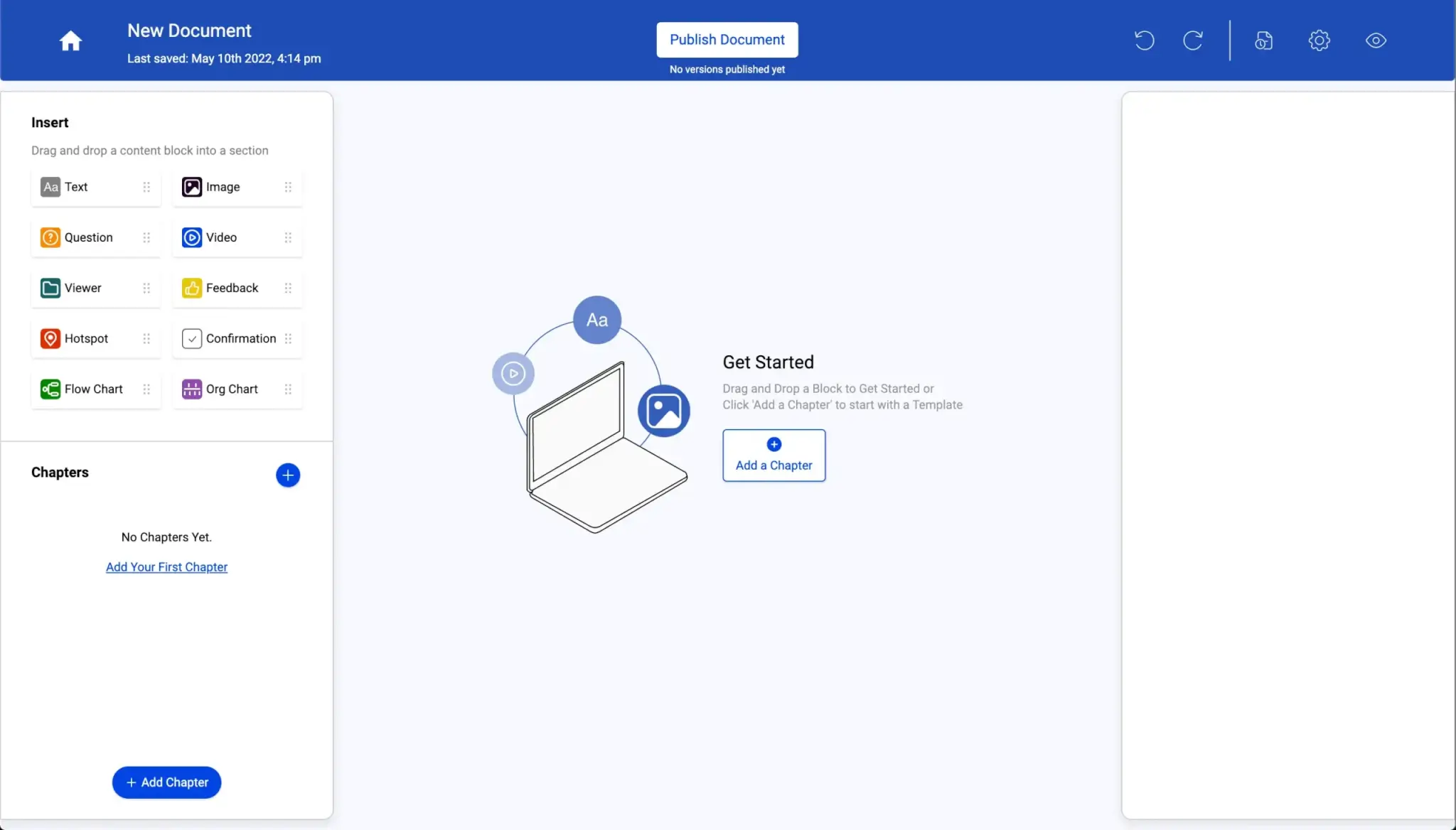
SkyPrep is easy to use and easy to implement, making this a good choice for small and medium retailers. Its automated assignments and extensive reporting give retail companies more insights into learner progress without requiring an extensive performance history.
12. Tovuti LMS
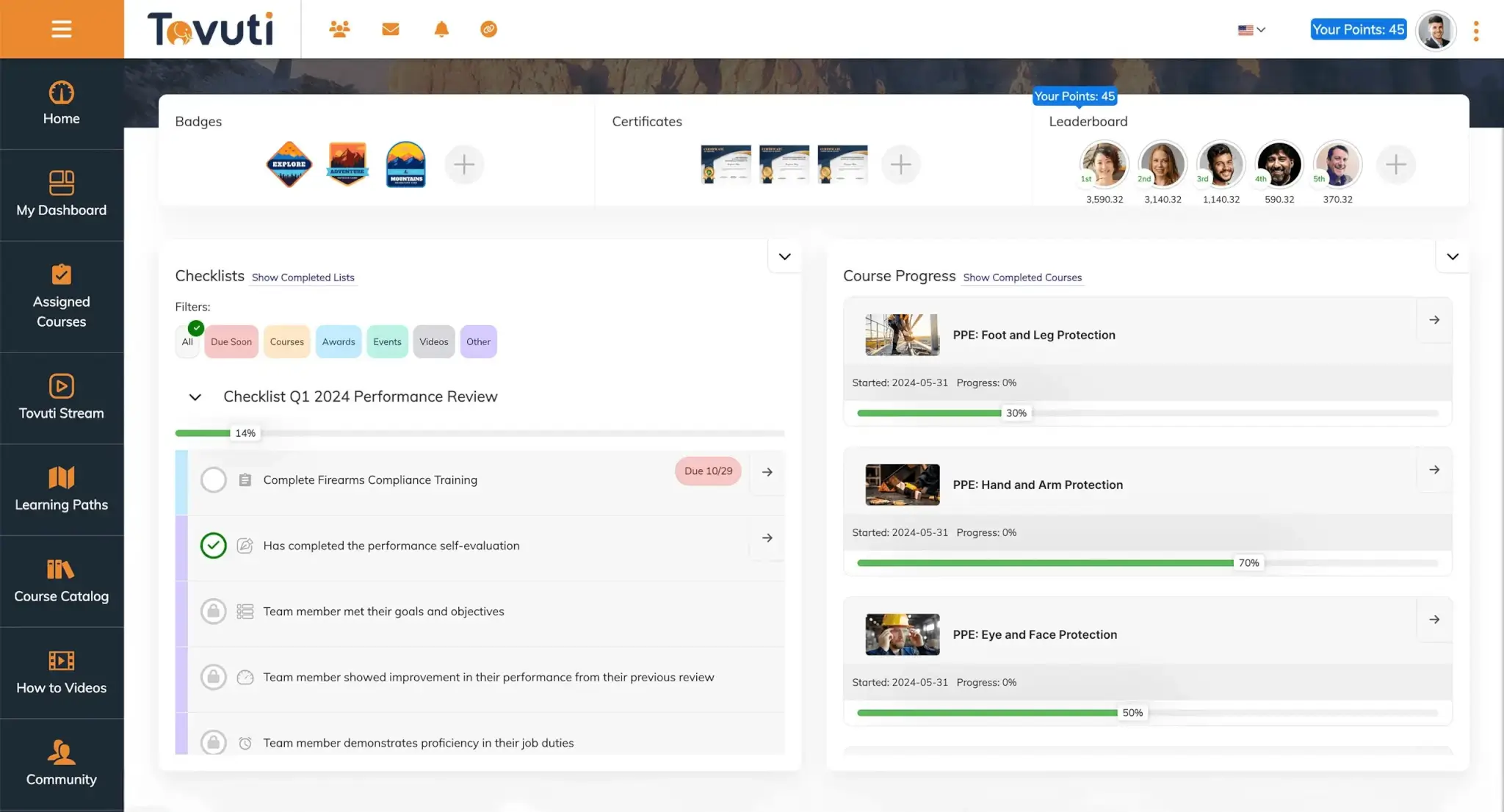
Tovuti LMS is an all-in-one retail training platform that allows businesses to create interactive content and virtual classrooms. Retailers use it to provide interactive learning for both in-store and remote employees.
13. SC Training (formerly EdApp)
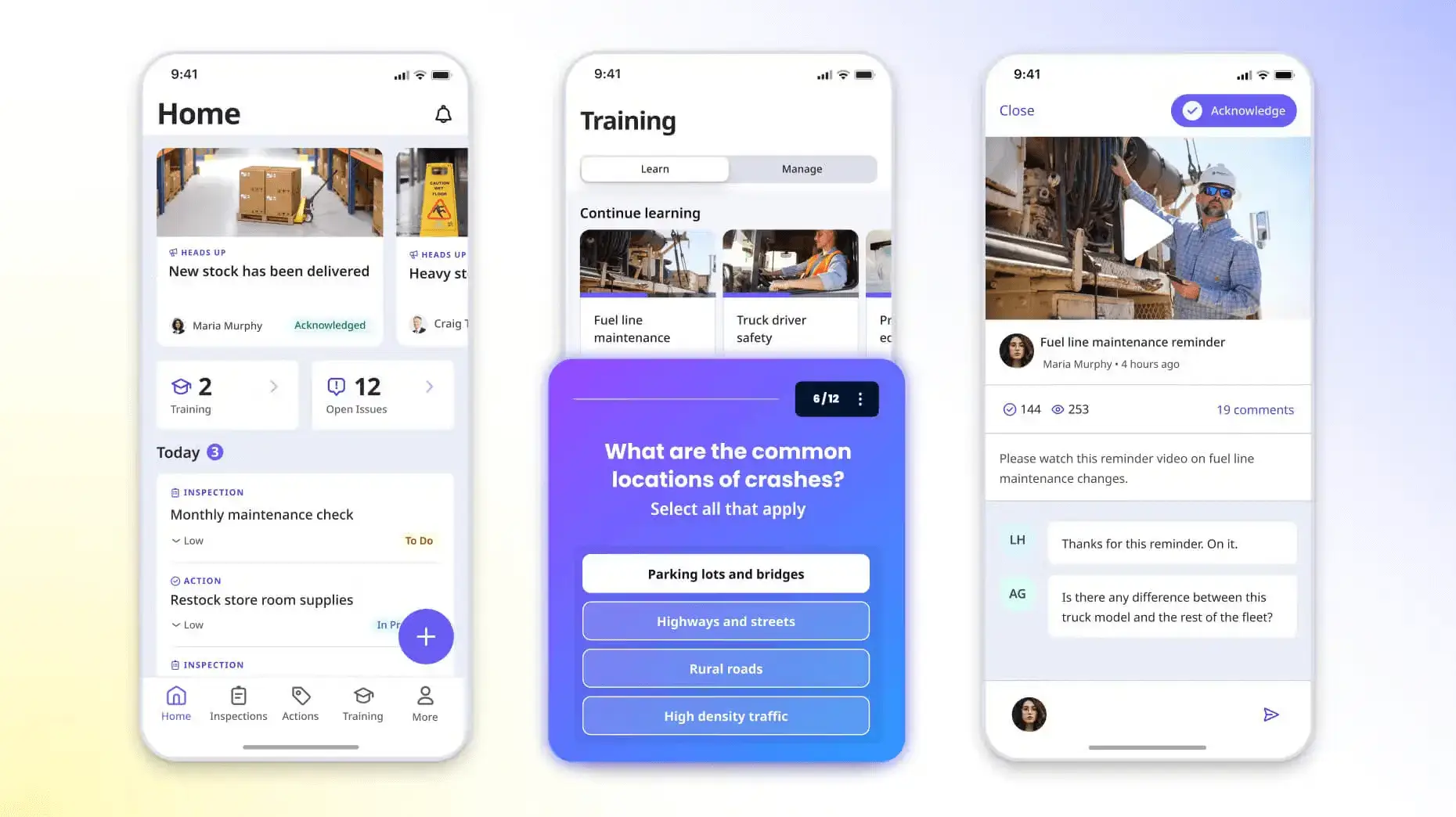
SC Training is a mobile-first learning solution that allows you to create bite-sized training for customer-facing teams. Retailers use it to rapidly author, customize, and deploy any form of training around product knowledge and customer service across multiple locations, with gamification, rewards, and real-time analytics.
Key retail LMS features to look for
Choosing the right retail LMS comes down to the very features that relate to the fast-paced, high-turnover, and continuously changing nature of retail.
Some of the things to consider when looking for the best retail LMS capabilities are:
Armed with these basic features, you’re almost ready to pick a solution that brings together the unique challenges of retail and allows teams to learn, adapt, and grow. How you implement them also matters.
How to implement retail LMS software
When using your first retail LMS software, you need a strategy, clear goals, and involvement from various stakeholders across your company. Here’s a guide to how you can implement retail LMS software to make sure all people will enjoy using it:
A thoughtful rollout gives your team the tools and the general readiness to achieve ongoing learning success as your retail training requirements evolve. Picking the right platform, though, can be a bit trickier.
Tips for selecting the right retail training platform
So, beyond essential features and use cases, what else plays into your final choice for the best retail LMS??
Identify must-have features and integrations
It’s not all about getting all the essential features. Some tools might not come with a feature or integration that your specific workflows and teams need, like interactive onboarding, personalized learning courses, mobile access, or strong reporting tools.
For instance, with ecommerce training, task-based tutorials should be possible, and you might even need a strong interaction with your current sales analysis system.
Align the platform with your store structure
The right retail training platform should match your store structure. Not the other way around.
This allows the learning system to reflect the very structure of your store, looking after multiple (branch or nationwide) locations and specific departmental needs.
Consider long-term scalability and support
Choose a platform that can keep pace with your expanding retail operations, accommodating more users, more places, and more courses without losing performance.
Planning on adding more staff? Make sure your retail LMS can accept new users, perhaps at no extra cost. Want to scale globally? Multilingual learning support should be on your radar.
LearnWorlds: The best LMS for retail companies
LearnWorlds is the best LMS for retail companies that need a versatile, scalable, and entertaining training solution.
The AI-powered platform unites plenty of functionalities designed to simplify employee onboarding, offer compliance training, and drive continuous skills-based learning for dispersed retail teams. With engaging authoring tools, mobile learning, and personalised learning experiences, LearnWorlds makes learning a fun process while also helping you reinforce knowledge.
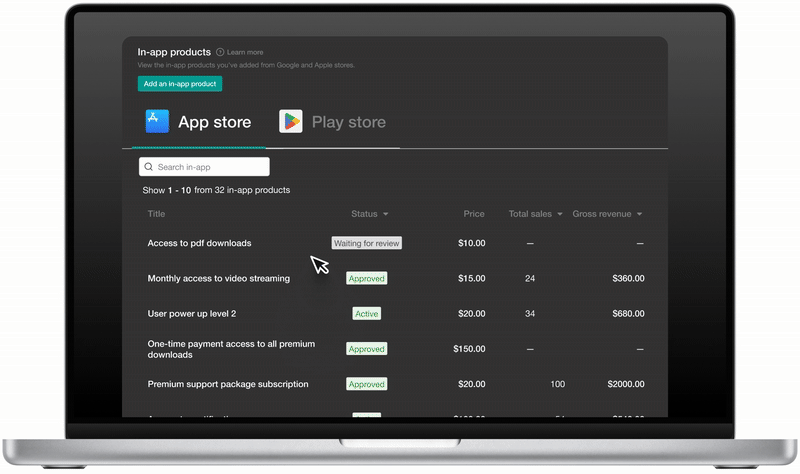
Take advantage of LearnWorlds’ great customisability to create your own branded academy and even launch your mobile app, including:
Start your free trial and see how LearnWorlds’ best retail LMS can help upgrade your training programs.
Sources
[1] Training retail employees — facing the new reality of retail with engaged associates

Alexandra Cote
Alexandra Cote is a SaaS growth marketer and online instructor who's worked with dozens of brands in the MarTech, HR tech, and productivity space. She's also a strong supporter of staying happy at work and choosing a healthy career path.
FAQ
Everything you have ever wondered, but were too afraid to ask...
Simulation-based learning teaches workers how to solve problems by experiencing them in real-world simulations, and social learning is a more natural way to share knowledge.
Learn more about how to deliver effective sales training remotely with LearnWorlds.


